PLAN Professional Development
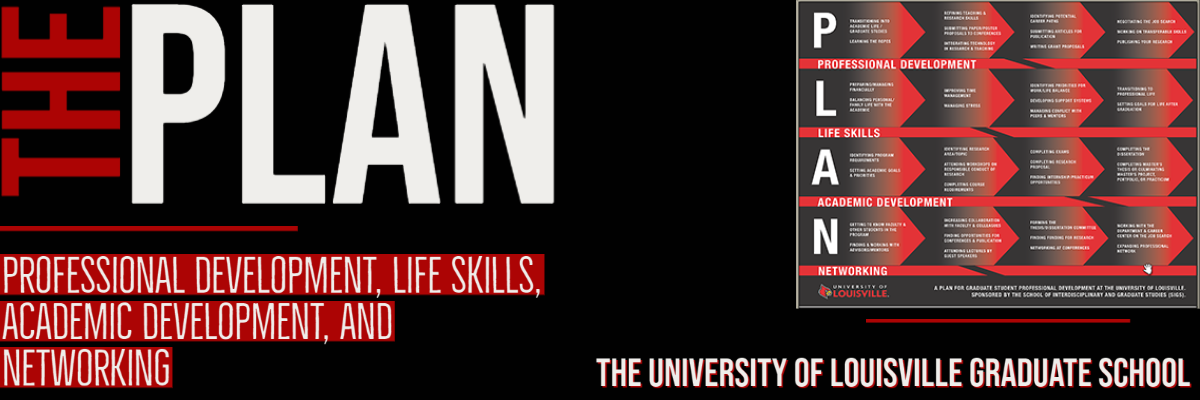
PLAN’s mission it to support graduate student success in, through, and as they leave graduate school. PLAN supports graduate students by offering guidance, programming, consultation, and personal and professional development opportunities online and in person.
PLAN helps students take charge of their own learning and development by offering opportunities and resources related to Professional Development, Life Skills, Academic Development, and Networking skills.
PLAN is developed with an understanding of the literature about graduate student success, and feedback from graduate students, directors of graduate studies, faculty, and staff.
Learn more about professional development opportunities in the Graduate School below.
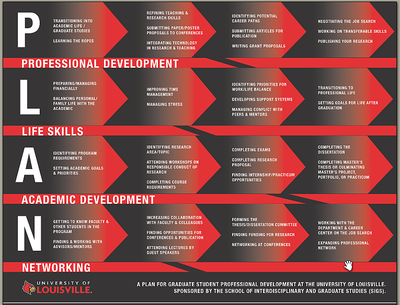 |
PLAN Overview: Learn more about PLAN here. |
|---|---|
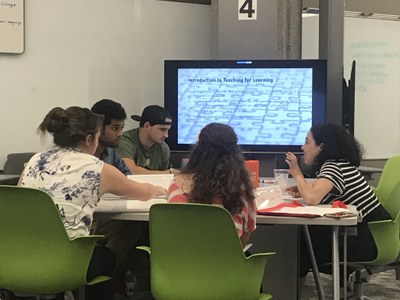 |
Graduate School Academies are non-credit-bearing short courses designed to help graduate students develop knowledge, skills, and experiences that complement their academic coursework. Led by experts, interdisciplinary in nature, and flexible in format, academies share foundational concepts while allowing students to immediately apply their learning. Selected graduate students who complete the academies have tangible deliverables, marketable skills, and language to communicate their learning. |
 |
Professional Development Communities At the University of Louisville, Graduate students have unique opportunities to learn and grow in areas of interest across disciplinary lines. These professional development communities allow graduate students to learn, grown, and develop in specific topic areas by engaging with other graduate students and experts. Graduate students apply to join Professional Development Communities, commit to attend at least 5 workshops during the semester, participate in a community of graduate students with similar interests through Microsoft Teams, complete a personal, time-limited, skill-related project of their choice, and receive additional resources, support, and engagement. Additionally, all students who complete the requirements for the Professional Development Committee will be recognized with a certificate at the Annual Dean’s Reception. |
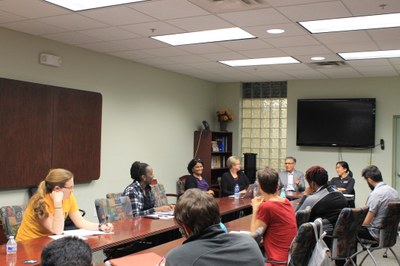 |
The Graduate School leads and hosts between 20-60 in-person and remote workshops in any given year, to support graduate students' transition into graduate school, through their graduate education, and as they move to the next stage in their lives and careers. Graduate students who participate in six or more workshops in a given year are recognized at the Annual Graduate Student Dean's Reception. Additionally, graduate students will soon be able to select areas of focus to complete a more in-depth learning experience. |
 |
Resilient Graduate Student Series This series, initially developed by the NIH, has now been adapted for UofL. Navigating school, the career exploration process, research environments, and the stress of life can seem overwhelming and lead us to doubt ourselves just when we need confidence the most. The goal of this series is to help you develop the resilience you need to navigate challenging situations in school, work and life. The series will consist of six recorded videos, each followed by a small group discussion the following week. The videos will highlight emotional intelligence competencies needed for academic success and for thriving in graduate school and future careers. We will discuss the cultivation of skills to help you realize resilience and identify and deal with obstacles that get in your way. |
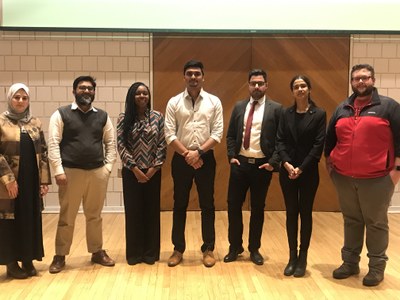 |
The Graduate School hosts a number of special events for graduate students, from the International Three Minute Thesis (TM) Competition, to Women's Panels, Graduate Student Appreciation Week, the Celebration of Excellence in Diversity, and more. |
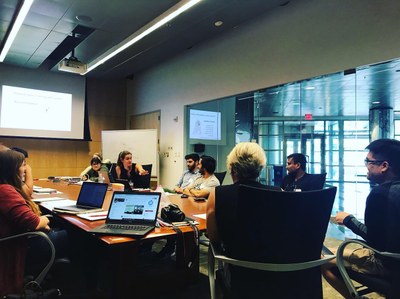 |
Effective mentoring is both a needed experience for graduate students and an important skill to develop, no matter your career path. The Graduate School supports a number of mentoring efforts, including a Mentoring Academy, Research Mentoring Award Grant, the MentorCenter Online Resource Center, and programming to support quality mentoring efforts in individual programs. |
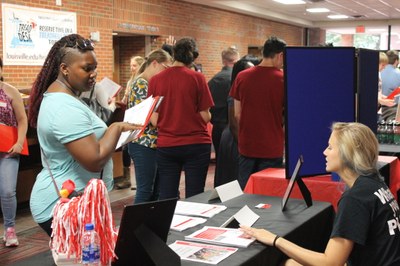 |
The University of Louisville and the Graduate School have a vast number of resources for graduate students. |
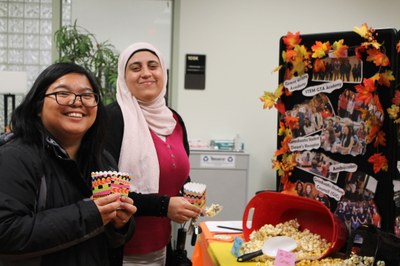 |
Other Other important information. |
